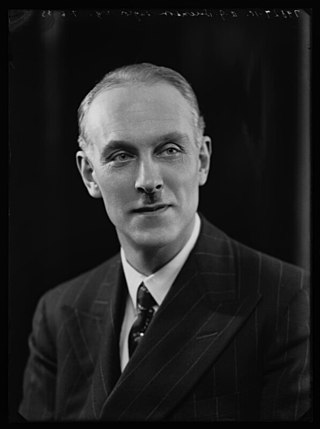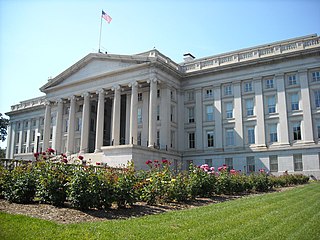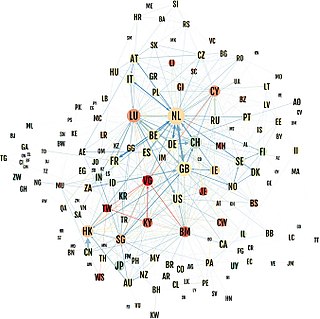
The economy of Monaco is reliant on tourism and banking. Monaco, situated on the French coast of the Mediterranean Sea, is a popular resort, attracting tourists to its casino and pleasant climate.
Participatory economics, often abbreviated Parecon, is an economic system based on participatory decision making as the primary economic mechanism for allocation in society. In the system, the say in decision-making is proportional to the impact on a person or group of people. Participatory economics is a form of a socialist decentralized planned economy involving the collective ownership of the means of production. It is a proposed alternative to contemporary capitalism and centralized planning. This economic model is primarily associated with political theorist Michael Albert and economist Robin Hahnel, who describes participatory economics as an anarchist economic vision.

A shell corporation is a company or corporation with no significant assets or operations often formed to obtain financing before beginning business. Shell companies were primarily vehicles for lawfully hiding the identity of their beneficial owners, and this is still the defining feature of shell companies due to the loopholes in the global corporate transparency initiatives. It may hold passive investments or be the registered owner of assets, such as intellectual property, or ships. Shell companies may be registered to the address of a company that provides a service setting up shell companies, and which may act as the agent for receipt of legal correspondence. The company may serve as a vehicle for business transactions without itself having any significant assets or operations.
Tax competition, a form of regulatory competition, exists when governments use reductions in fiscal burdens to encourage the inflow of productive resources or to discourage the exodus of those resources. Often, this means a governmental strategy of attracting foreign direct investment, foreign indirect investment, and high value human resources by minimizing the overall taxation level and/or special tax preferences, creating a comparative advantage.

Eurodad is a network of 53 non-governmental organisations and seven statutory allies from 29 European countries. Eurodad and its members make up a network, this network researches and works on issues that are related to debt, development finance and poverty reduction.
The Tax Justice Network (TJN) is a British advocacy group consisting of a coalition of researchers and activists with a shared concern about tax avoidance, tax competition, and tax havens.

Alfred Jesse Suenson-Taylor, 1st Baron Grantchester, was a British banker, Liberal politician and a neo-liberal activist.
A tax haven is a term, often used pejoratively, to describe a place with very low tax rates for non-domiciled investors, even if the official rates may be higher.

An offshore financial centre (OFC) is defined as a "country or jurisdiction that provides financial services to nonresidents on a scale that is incommensurate with the size and the financing of its domestic economy."

Treasure Islands: Tax Havens and the Men who Stole the World (2011) is a non-fiction book about the secretive role of offshore banks and tax havens in global economic affairs. The book was written by Nicholas Shaxson, a political analyst and associate Fellow of the Royal Institute of International Affairs. It was first published on 6 January 2011.

Ioannis Georgiou "Yanis" Varoufakis is a Greek economist and politician. Since 2018, he has been Secretary-General of Democracy in Europe Movement 2025 (DiEM25), a left-wing pan-European political party he co-founded in 2016. Previously, he was a member of Syriza and was Greece's Minister of Finance between January 2015 and July 2015, negotiating on behalf of the Greek government during the 2009-2018 Greek government-debt crisis.

The Ministry of Economy and Finance, also known by the acronym MEF, is a ministry of the Italian government. Its responsibilities include overseeing economic policy, public investments and spending. The Ministry's headquarters are located in Rome's historic Palazzo delle Finanze. The current minister in the Meloni Cabinet is Giancarlo Giorgetti.

Base erosion and profit shifting (BEPS) refers to corporate tax planning strategies used by multinationals to "shift" profits from higher-tax jurisdictions to lower-tax jurisdictions or no-tax locations where there is little or no economic activity, thus "eroding" the "tax-base" of the higher-tax jurisdictions using deductible payments such as interest or royalties. For the government, the tax base is a company's income or profit. Tax is levied as a percentage on this income/profit. When that income / profit is transferred to a tax haven, the tax base is eroded and the company does not pay taxes to the country that is generating the income. As a result, tax revenues are reduced and the country is disadvantaged. The Organisation for Economic Co-operation and Development (OECD) define BEPS strategies as "exploiting gaps and mismatches in tax rules". While some of the tactics are illegal, the majority are not. Because businesses that operate across borders can utilize BEPS to obtain a competitive edge over domestic businesses, it affects the righteousness and integrity of tax systems. Furthermore, it lessens deliberate compliance, when taxpayers notice multinationals legally avoiding corporate income taxes. Because developing nations rely more heavily on corporate income tax, they are disproportionately affected by BEPS.
The Republic of Panama is one of the oldest and best-known tax havens in the Caribbean, as well as one of the most established in the region. Panama has had a reputation for tax avoidance since the early 20th century, and Panama has been cited repeatedly in recent years as a jurisdiction which does not cooperate with international tax transparency initiatives.
James S. Henry is an American economist, lawyer, and investigative journalist. He is an Edward R. Murrow Fellow at Tufts University's Fletcher School of Law and Diplomacy and an INSPIRE Fellow at its Institute for Global Leadership. Henry has written extensively on the problems of financial secrecy, capital flight, tax evasion, tax justice and developmental finance. Henry is, along with Nicholas Shaxson, a founding member and senior adviser of the Tax Justice Network.
Stuart Fraser is a politician based in the City of London Corporation. He was chair of the Policy and Resources Committee there from 2008 until 2012. He became involved as a politician following a successful career as a stockbroker. He is a director of Brewin Dolphin.

Conduit OFC and sink OFC is an empirical quantitative method of classifying corporate tax havens, offshore financial centres (OFCs) and tax havens.

Ireland has been labelled as a tax haven or corporate tax haven in multiple financial reports, an allegation which the state has rejected in response. Ireland is on all academic "tax haven lists", including the § Leaders in tax haven research, and tax NGOs. Ireland does not meet the 1998 OECD definition of a tax haven, but no OECD member, including Switzerland, ever met this definition; only Trinidad & Tobago met it in 2017. Similarly, no EU–28 country is amongst the 64 listed in the 2017 EU tax haven blacklist and greylist. In September 2016, Brazil became the first G20 country to "blacklist" Ireland as a tax haven.
James R. Hines Jr. is an American economist and a founder of academic research into corporate-focused tax havens, and the effect of U.S. corporate tax policy on the behaviors of U.S. multinationals. His papers were some of the first to analyse profit shifting, and to establish quantitative features of tax havens. Hines showed that being a tax haven could be a prosperous strategy for a jurisdiction, and controversially, that tax havens can promote economic growth. Hines showed that use of tax havens by U.S. multinationals had maximized long-term U.S. exchequer tax receipts, at the expense of other jurisdictions. Hines is the most cited author on the research of tax havens, and his work on tax havens was relied upon by the CEA when drafting the Tax Cuts and Jobs Act of 2017.

Michelle Meagher is a British lawyer, author and campaigner. Meagher is advocating for an overhaul of competition policy away from the Chicago School antitrust consumer-centered paradigm.












